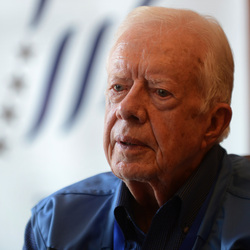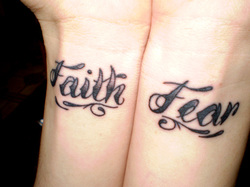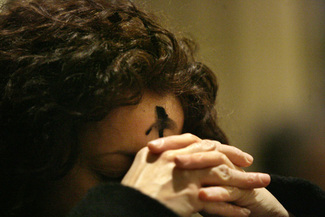|
|
 Today as the snow falls in central Indiana, when the would be lamb seems more like a lion, it is a few days past the time when Catholic sisters and brothers across the globe celebrate the feast of Annunciation. The feast is celebrated on March 25, the time to gather to light candles, breathe prayers and acknowledge the power of a moment, when she said, “Yes!” one of my favorite days in the liturgical calendar-- but this year-- I missed it. Somewhere between the World Vision madness and my own broken heart shattered and beleaguered as believers tear at each other again while children go hungry and folks who pursue Jesus are cast aside by the church once more, I read my twitter log and blog roll, and consumed with grief, I missed the quiet, life changing announcement of hope in the darkness. The Annunciation, after all, is the celebration of an adolescent girl who was confronted with the power and presence of God. In the Annunciation, a young woman who finds herself in the glowing fire of Gabriel’s wings surrenders to the impossible call of God which invades her life and changes the trajectory of her future and all of human history. Protestants too, do well to mark this high and holy day for many good reasons. We should pause to remember the Annunciation because it reminds us of the narratives of Scripture when God comes to the world and moves in and through the feminine. These are stories of our foremothers and they ought not be taken from us, rather celebrated so that we might reclaim what has been lost, a sense of God’s call to and for women even in the delicate work of birthing forth God’s Word. We should wrap our hearts and minds and arms around this opportunity built right into the church calendar to inspire young women and to remind people everywhere to do as she did, to allow the call of God to invade our lives and to take us where it will. The miracle of the Annunciation is hard for us in the twenty first century, we are unable to lay down our plans, our smart phones and our long term goals, our mission statements and our vision boards to be slow and still enough to notice angels in our midst, to heed the call of God wooing us into some unheard of, unbelievable, unfathomable future but that is exactly what the Annunciation calls out of us. In the observance of this day, we are invited to believe as Mary did, “nothing is impossible for God” (Luke 1.37). We don’t need to restate the obvious, that she was young, unmarried, and would be scandalized for her response, perhaps we do need to say that it is likely she had plans of her own, desires and dreams, hopes and an entire scenario according to which she believed her life would unfold. Whatever her plans might have been, in a moment, she gave them over; she surrendered and she said yes instead to the unfathomable plan of God come to her on the lips of the angel. Instead, unlike Mary, in the midst of our own fear we spew hate and we dig into our camps and we forget the miracle of God with skin on, of a king born to a poor unwed teen in a backwater town in a horse stall, we forget that God works in ways not our own. We forget that what makes the most sense is often a device of human invention and not the work of the divine who shatters cultural norms and breaks open wide the realm of logic and reason and invites us into what is miraculous, wild and free. In the Annunciation, we reaffirm our belief in this God who works not according to creaturely conventions, but who is above it and who will be made known through whom God will be made known. We remember that nothing is impossible so we envision a reality when people who love God, follow the example of Christ empowered by Spirit are able to coexist and work together towards the common good of feeding hungry children no matter our interpretation of particular biblical passages regarding marriage, we pray for a moment when we look beyond our hermeneutical/interpretive differences to hold hands across the world to make the Kingdom known. We whisper “yes” in the face of the impossible because we believe in the redemption of all things, our hearts pound as we step forward into an uncertain future and a territory not crossed before, we know we may be scandalized, we know we may be read wrongly if our hearts and the mysterious of work of God is not made known, but we decide our differences are not all we are but it is our deep love for this One that unites us, it is our allegiance to Jesus that will see us through. And we say with Mary, "I am the hand maiden of the Lord, let it be done, according to your word."
3 Comments
 Click link below to access Pres. Jimmy Carter's interview with Indiana Public Radio on his latest book, "A Call to Action" where he addresses religion and subjugation of women and human trafficking. http://www.northcountrypublicradio.org/news/npr/292429202/jimmy-carter-issues-call-to-action-against-subjugation-of-women  I grew up in the Wesleyan Holiness tradition, more specifically in the firey Reformation Movement known as the Church of God, Anderson, IN. Raised in a church pastored in the early 1930’s by a woman, I grew up steeped in the stories of our pioneers and their work for gender and racial equality. Before I was old enough for the youth group, I knew about Evangelist Lena Schoffner who had preached a revival in the racist South just on the heels of the Civil War. In the tent where she spoke, there was a rope hung down the middle dividing space where black and white folks could sit. As she preached the kerygma of gospel holiness and unity, she called for the rope to be torn down and the divisions to be forgotten since we are all one in Christ Jesus. Later, those who opposed Schoffner’s message of unity blew up the site where the church had been gathering. I am not sure what it was, but as a very young child, I felt connected, felt at home in the company of a people who were committed to human rights and dignity, who believed in Paul’s words that Christ had made us one, who acknowledge there is no longer Jew or Greek, male or female, slave or free (Galatians 3. 26-28). This sense of unity, holiness, justice seemed to resonate deep in my bones and in some ways, defined me and my place in the world. It wasn’t until later that I’d learn about the great Holiness revivals of the late 19th century, that I’d learn about sisters and brothers who born of the same water and fire. All of us descended from John Wesley’s Methodism, the Free Methodists had broken off because they believed the poor should not be excluded from worship if they couldn’t pay dues; the Wesleyans had separated during the fight for the abolition of slavery, my own tradition distinguished itself over the insistence of inclusion, that all are welcome at the table of the Lord. As I have matured, have studied, have grown, I have wondered about those early days, about the passions and call that drove us forward that seems all but lost across the last century. I wonder where the fire burned during the American Civil Rights Movement of the 1960’s, where we lost our way in the fight for gender equality, how it is that we have been silent on issues of justice, have forgotten the poor and the alien in our midst. Instead there has been much talk on justification, taking Augustine’s perspective on justification as conversion. We have busied ourselves winning souls for their safe keeping in the afterlife with no attention to living in such a way that we might make this world a better more just existence. This is a misunderstanding of the Pauline notion of justification, at best, and a complete and total missional estrangement at worst. For Paul, justification cannot exist without justice and the justice of God is worked on this earth through the people of God who live and love as Jesus (1 Cor. 15). As God’s creatures, we are saved to do the work of God in the world, to partner with God in setting all things right. This summer, the Church of God, Anderson will gather in Oklahoma City, OK, a different location than where we have gathered for the past 100 years. We will gather in a place that is not the site of our fear, not in the site where in the early 1900’s we asked our darker skinned brothers and sisters not to convene due to mortal threat of the Ku Klux Klan. Instead, we will gather in the city where our spiritual mother Lena Schoffner was called to pastor in 1903 and we will dream new dreams and we will see new visions of hope and peace and justice.  In this season of Lent, I have been thinking a lot about wilderness- the place of no words; I have been reading the stories of the ancients, St. Anthony who stood upon the stone, Amma Matrona who wrote, “We carry ourselves wherever we go, we cannot escape fear with flight.” Others who chose to walk out into the bareness believing that it is only in suffering we truly commune with God. Jesus’ own wilderness wandering is not unlike that of Old Testament prophet Elijah, the man of God who called down fire from heaven to smite 400 prophets of Baal on the high point of Mt. Carmel (I Kings 18). I am intimately acquainted with this story; Elijah is my favorite biblical character according to aptitude tests administered upon my acceptance to seminary. Those esteemed folk who read the bubbles colored in with a number 2 pencil said, I chose Elijah because his is the character with whom I most identify. It seems I have some deep resonance with this one who was fed by ravens when the famine took the land, Elijah who revived the widow’s son from the grave, Elijah who prayed and upon whose word the rain ceased to fall; Elijah prophet fierce and wanderer afraid. Admittedly, I love the parts of the stories where Elijah is bold and fiery, when he mocks the prophets of Baal, rolls right around on the ground laughing at them. I am in awe of the conviction with which he stood before Ahab unflinching and am humbled by the unwavering stance of his commands. It is the part where he’s so afraid, so frail and insecure that makes me squirm in my seat. My face flushes pink and hot and I wish he had not run away from Jezebel, regret that he threw in the towel and was brought low by his fear, I twitch, I writhe, but I know. I know what it is to lose faith, to lose composure, to lose the power to maintain the strong face you want to present to the world. I know what it means to be brought low and need help, to buckle at the knees and be found at the end of my own strength, again. In some ways this is the gift of the wilderness, what the desert mothers and fathers knew, that when we find ourselves stripped of all comfort and assurance uncertain of our own ability to survive, it is here where what is mystical is manifest and we find the solace of God. It is in this deep poverty of spirit where heaven meets earth, when words are scarce but presence is real; it is here in the dust when the angels attend us. Perhaps it is wilderness that helps us speak our raw, real need, we cry out, “help!” And they come--with chicken noodle soup and chocolate chip cookies, with soft blanket and fuzzy slippers and valentines stamped with baby’s footprints. The words roll in text messages delivered with stardust, facebook posts, emails and cards through the mail as if they had flown in on gossamer wings, and this--this is oxygen, the humidifier in your childhood bedroom that helps you breathe, in and out and you concentrate on doing just that. You begin to realize out there in the wilderness, what is true. Fear is not from God, but fear is a part of you and at some point you have to accept it all, even the broken parts of yourself that you wish weren’t there. In the wilderness you see the ugliness, the scars, the unhealed wounds and you have to find a way to love those places and then to show them to those who love you. It is not easy, when you have fought so hard to keep fear at bay, to stamp it down and keep it covered to no avail, maybe the wilderness teaches us, you have to pick fear up and take it by the hand acknowledge it is a part of you so you can make it known and healing can begin. Maybe the biggest step towards faith is making peace with fear because what you make peace with can no longer keep you down. For all of you, fighting great battles may the angels attend you as face fear and love your scars. May your lungs fill up with the oxygen of presence so that you might be revived and walk on.  Today I took the ashes, had the grey black soot smeared across my forehead to remember my mortality and then I bought a rhinestone necklace because everybody grieves differently. Today is both Ash Wednesday, the beginning of the season of Lent and today marks eleven years since my life changed forever. I never wanted grief to be my specialty; never wanted to know so intimately what it is to lose so much or so many whom I have deep loved and known. I never wanted the sparse, parched earth that is wilderness to become so familiar, to be able to trace the rugged landscape from memory, feel the rough hewn stones scrape my flesh over again. Today I am full aware that it has been eleven winters since it all began, grief upon grief and sorrow unto sorrow; eleven seasons of snow since the first phone call in the night, the first tragic, unfathomable loss which has now been made fresh as I relive and rehearse in yet another unspeakable loss. Broken, calloused, stunned and stumbling I walk into wilderness again. I look for words like manna, search under rocks and rubble for clarity and insight, I want to understand, want to name, need to make sense of bitter terrain. I look for the words of others, scan Amazon for new releases, download ancient rabbi’s and dessert mothers, I am desperate for the stories of those who have come through, I am desperate to know someone who has been where I am. I wonder if anyone in this century has had anything to say, so many in my own time lured into fragile theologies that lack any acceptance of, humbling before, reckoning unto suffering. We run hard into glory and alliterate our pain and spiritualize the craggy, dusty, wasteland of wilderness though for Jesus wilderness was an integral passage along the way. In the Hebrew, midbar, wilderness, means literally, a place without words. There is something so honest in this which is the reason that I love this ancient language, it always tells the truth. The wilderness is the place of searching, straining, longing for words. We remember Jesus in the wilderness, led by the Spirit there, attended, kept, sustained by the Spirit as he faced the grueling temptation of choosing what seemed most logical, the sensible path, that which was destruction but looked like milk and honey. He resisted, he came through, found his way to hold onto the words of his past. He recounted words written deep into his person, words that formed belief and though he may not have had any faith to muster, he clung to words that had been stamped upon his heart, words that he had known before the harsh, bitter wilderness. As you walk through this season, intentionally or by force of the circumstances of life, remember the words that washed over you in your in your baptism, words that held you in the night, recall the words that remind you who you are and to whom you belong. Find ways to mark your path and know the sustaining presence of the Spirit with you and for you through it all. |
Subscribe Today for Free GiftBLOG
Archives
June 2019
Categories
All
|

 RSS Feed
RSS Feed